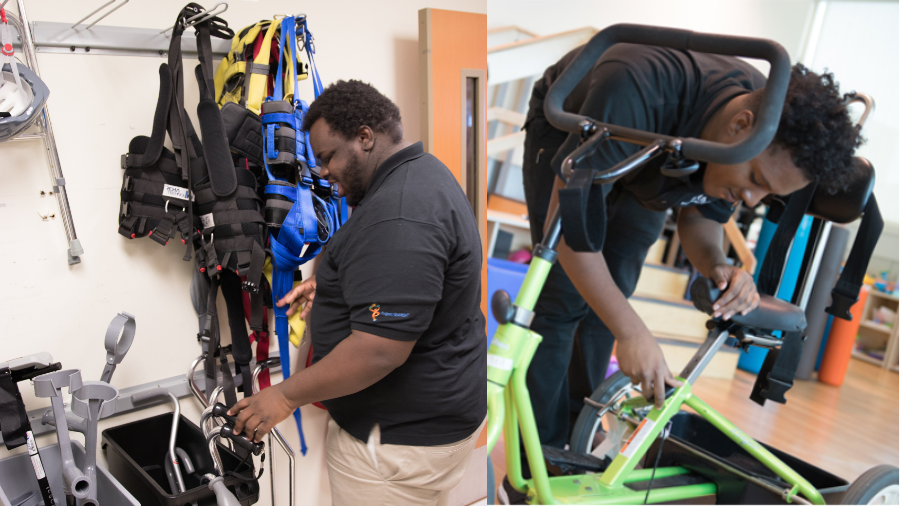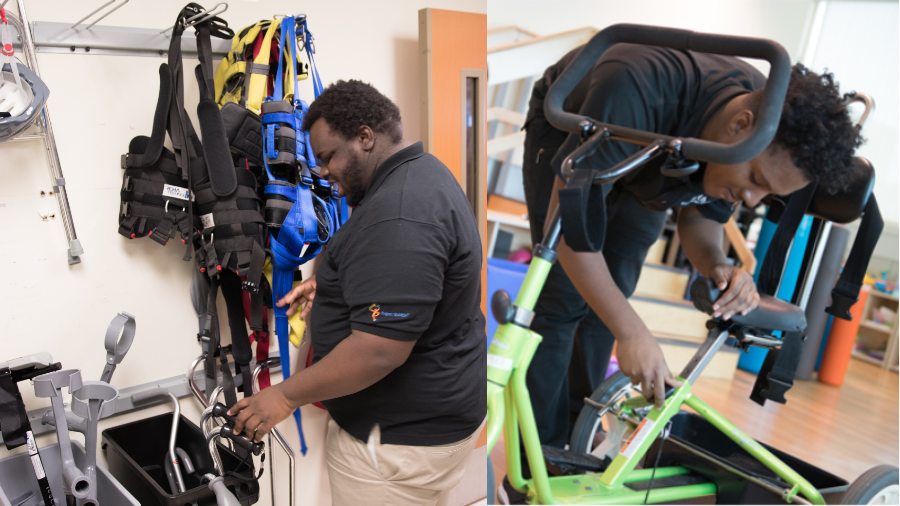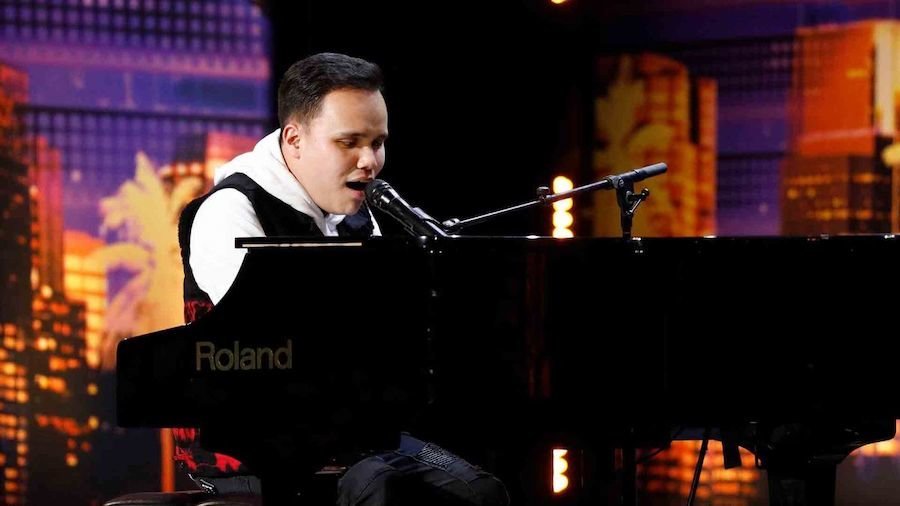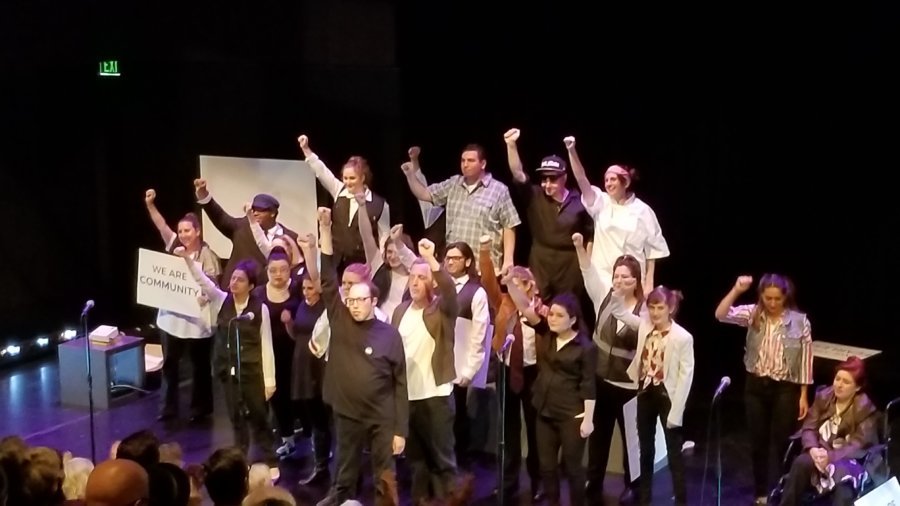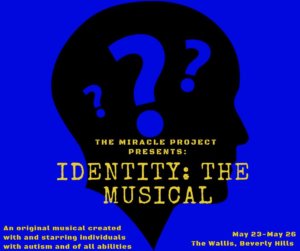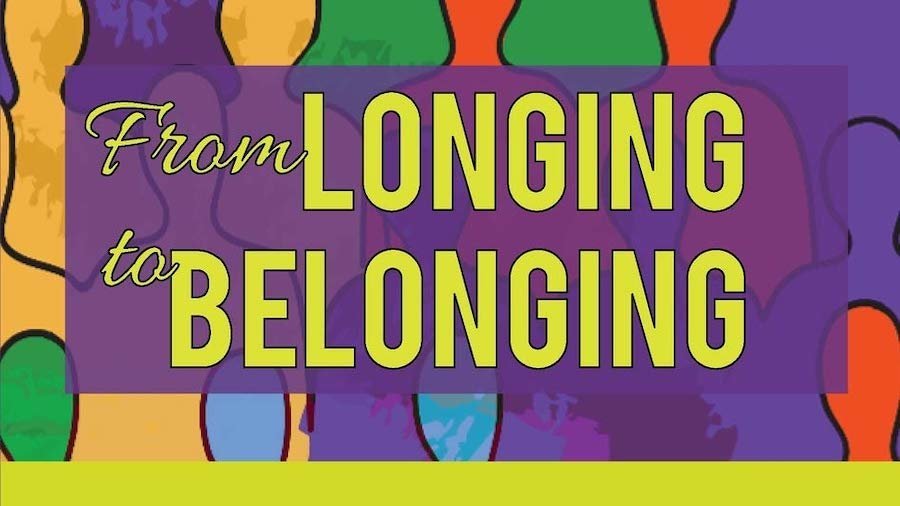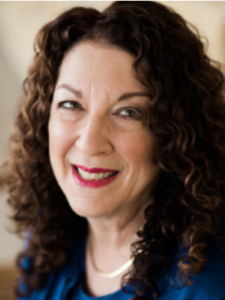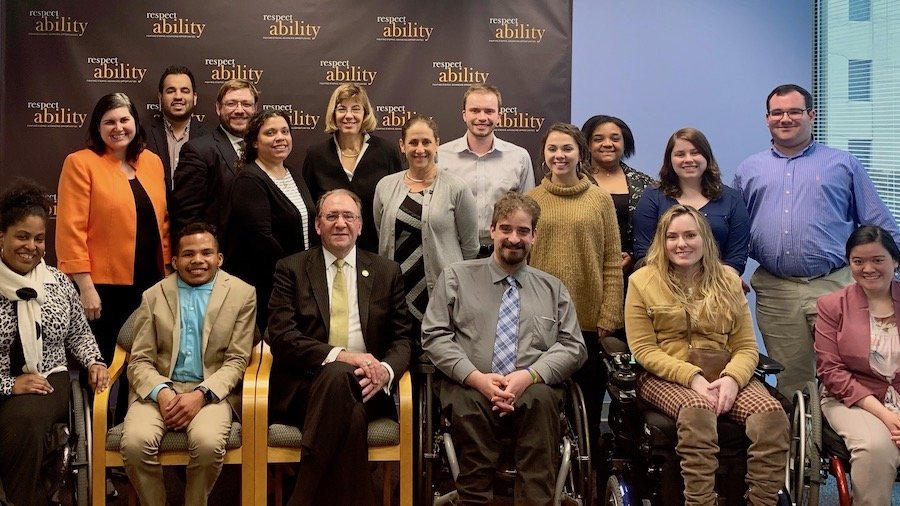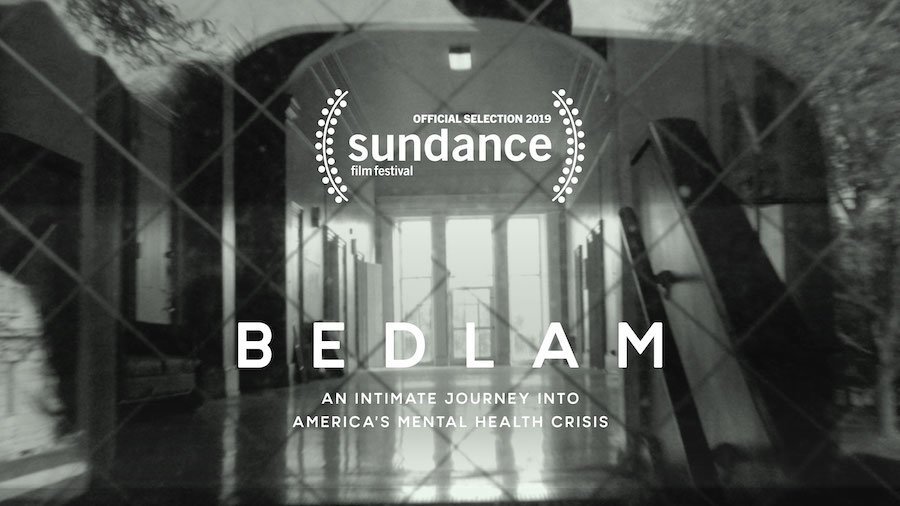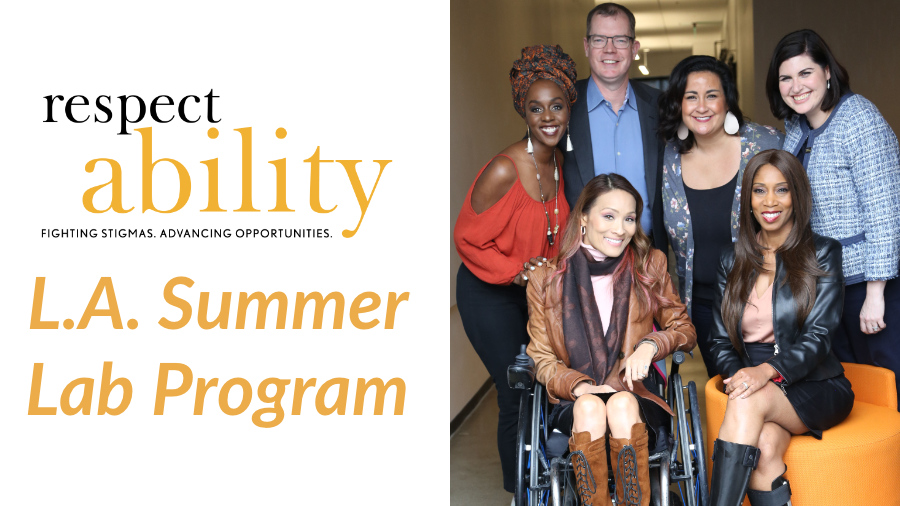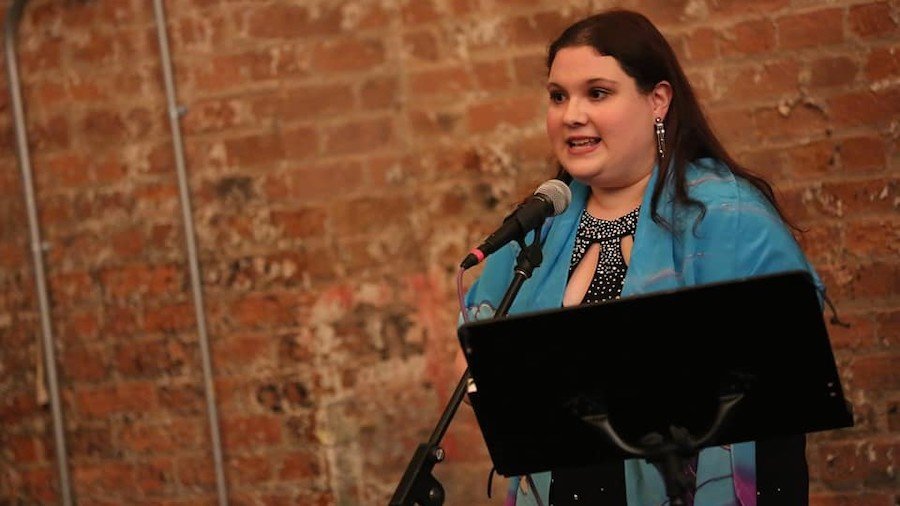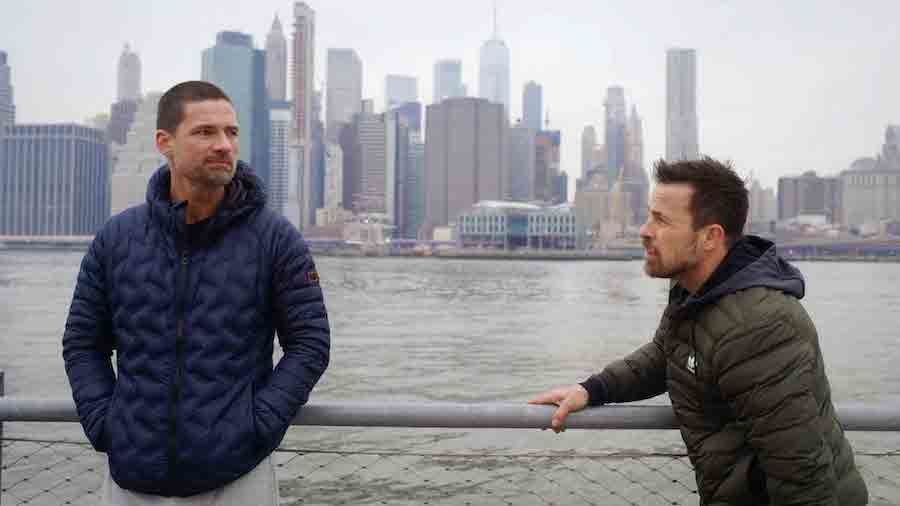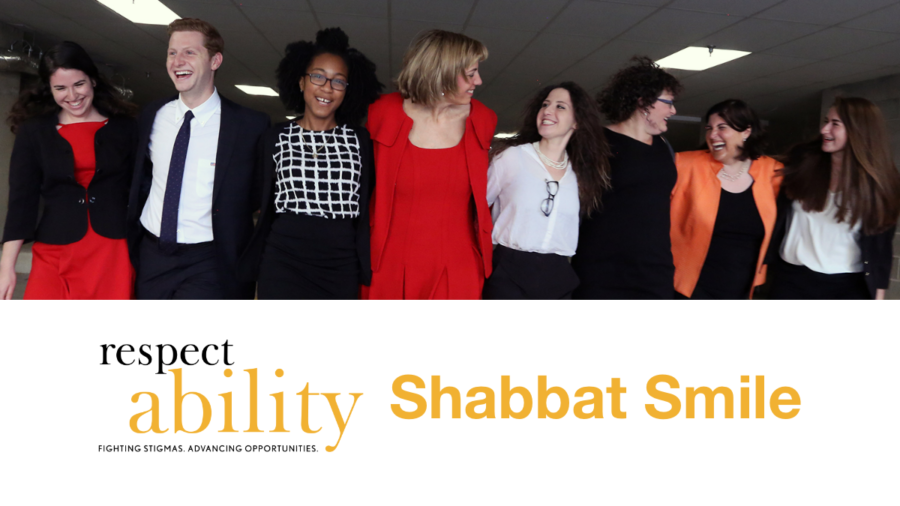Sponsors and Partners include Bunim/Murray Productions, Comcast NBCUniversal, The Walt Disney Company, Sundance Institute and more
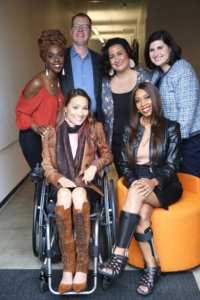
Top Row (L-R): Stephanie Thomas, Delbert Whetter. Melissa Yingst and Lauren Appelbaum
Bottom Row: Angela Rockwood and Andrea Jennings
Los Angeles, California, May 20 – Great entertainment requires authentic stories and genuine representation of all people. This includes diverse people with physical, cognitive, sensory, mental health and other disabilities. Hence, RespectAbility, the nonprofit that produced The Hollywood Disability Inclusion Toolkit, is thrilled to offer an innovative lab series for emerging entertainment talent, as well as a track for mid-level career professionals. This 5-week, nine-session summer lab program is for people with disabilities and/or strong disability connections interested in development, production and post-production, including careers as writers, directors, producers, cinematographers, animators and other production roles.
“What we see on screen influences how we act in real life, but that is dependent on filmmakers choosing to include individuals with disabilities in diverse and accurate portrayals, which then helps remove the stigmas that currently exist about interacting with individuals with disabilities,” said Program Director Lauren Appelbaum, who leads RespectAbility’s Hollywood Inclusion efforts as the organization’s vice president, communications. “One purpose of this program is to continue building the talent pipeline of young professionals with disabilities looking to work behind the scenes. We do not want anyone to have an excuse that they could not find a writer, editor or any other position with a disability.”
Several sessions will meet at various studios where program participants will have the opportunity to learn about possible career paths and have networking opportunities. Furthermore, entertainment professionals in positions of power to hire will meet a group of qualified individuals and potentially shift their mindsets in equity goals for hiring. After all, opening the inclusion umbrella is the right thing to do as well as economically smart given that the disability market is valued at more than $1 trillion. According to Nielsen Research, Americans with disabilities represent the third largest market behind Baby Boomers and the mature market. [continue reading…]
